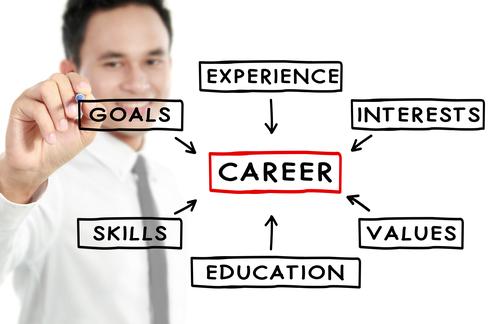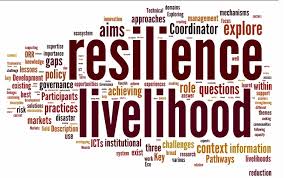Read or Hear the Latest Blog Posts
Are Nerves Ruining Your Job Interviews?
A while back I wrote about job interview techniques for nervous job candidates. While those approaches will work for most people who get nervous prior to job interviews or other high-stakes situations there are some people who need more support. If you’re one of those people then this blog post is for you. If you know one of those people, do them a solid and share this with them.

Part of Your Separation & Divorce Team: Career Coaches
When life throws a big curve ball, you want someone objective on your team who can help you make the best of your skills, interests, and precious time to ensure a resilient and satisfying livelihood. With me, “it’s more than career coaching, it’s career psychology.” My approach and outcomes are different because my foundation is different.
Are Reference Checks Worthwhile?
When properly structured, a good Reference Check will give employers and organizations valuable insights about the nature of the qualities that a candidate will contribute if/when hired. I like to focus on actual behaviors within the context of past situations. This blog post shows how a non-profit used a Reference Check to properly vet an applicant.

A Tale of Two Universities
In my mind, the link between these two trips is not the obvious fact that both locations are university campuses. What made these two trips similar is that both institutions relate to a theme of my last blog post: understated competence. Both of these universities have characteristics that give them special status as hidden gems. The College of William and Mary is a relatively small and understated university that’s often put into the same category as the Ivy League even though it’s a public institution. It’s the second oldest university in the United States, only Harvard is older. But even with its long history and high academic standing, it gets a lot less attention than the other “big name” schools like Princeton, MIT, Stanford, and the others.

Job Interview Ideas for Nervous Job Candidates
In my work as an HR Consultant I often discuss the hidden dangers of self-promotion when I’m advising hiring managers and business owners. There’s often a misconception that the people who “perform” best during interviews will perform best on the job. For hiring managers, it comes down to helping them distinguish between job candidates who sound like they’ll make great employees versus job candidates who will actually make great employees. I’ll write about my approach to evaluating job applicants in a future post. For now, I’ll focus on how talented, experienced, and humble people can do a better job of presenting themselves during job interviews. Rather than a step by step explanation, I’ll tell a story based on something that happened fairly recently.

The Art of Incidental Networking (for Busy People)
Despite its value, many people’s eyes glaze over at the thought of networking – especially when they’re simply too busy with their jobs, children, studies, etc. Well, for those of you who just don’t have the time to attend “networking events” there’s still plenty of hope. I call it “Incidental Networking.” It is incidental in the sense that it’s something natural that fits into your normal routine. In my opinion, it’s networking in the sense that you’re building genuine relationships with other people.

Networking for Resilience
This time, I’d like to explain what I mean by networking as a way to build the resilience that will support your successful career (or to include the self-employed — support your livelihood). Let’s start by explaining what I believe networking is all about. Fundamentally, it’s not about attending networking or social events and rushing around having conversations where you try to impress others by explaining what you do and why your product or service is the best. It’s no fun to be on the receiving end of those interactions and you don’t want to be known or remembered for being “that guy” or “that woman” who would not stop talking about themselves or their interests. Similarly, networking is not about working the room to collect the maximum number of business cards at an event. Neither approach sets the stage for making the kind of first impression that will translate into something that is positive and sustainable in the long term.
Resilience and Careers – What’s the Big Deal?
So that we’re all on the same page, let’s start with a definition. The American Psychological Association defines resilience as the process of adapting well in the face of adversity, trauma, tragedy, threats or significant sources of stress – such as family and relationship problems, serious health problems, or workplace and financial difficulties. Resilience is not a trait that people either have or do not have. It involves behaviors, thoughts and actions that anyone can learn and develop.










